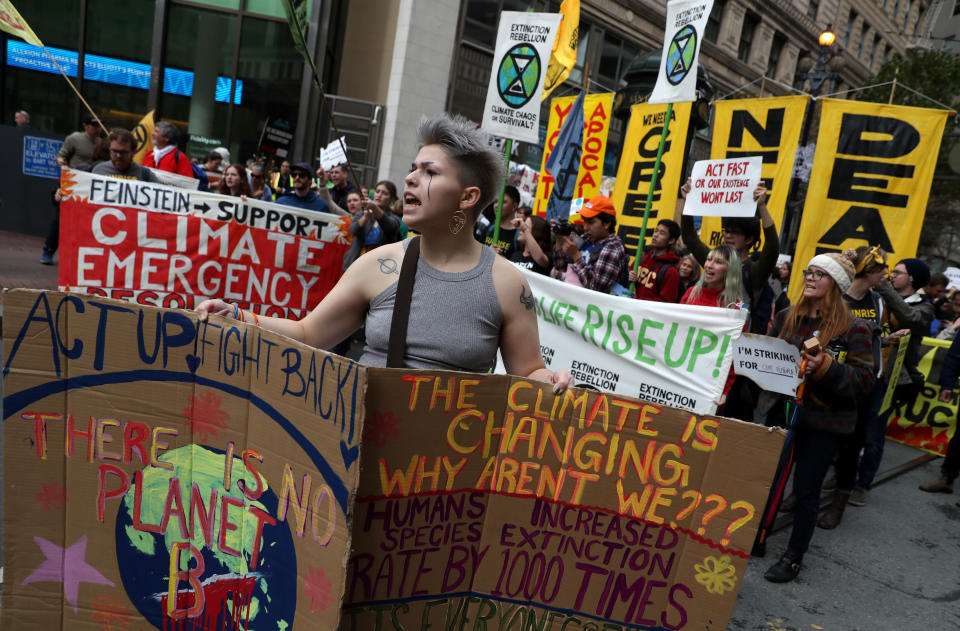BlackRock exec: Our climate change move came after a 'dramatic' spike in client interest
The world’s largest asset manager has made a landmark decision to place climate change at the core of its investment strategy. BlackRock’s global head of sustainable investing, Brian Deese, tells Yahoo Finance in a new interview it has become increasingly difficult to ignore.
“Climate risk is investment risk,” he said in an interview with Yahoo Finance’s On the Move on Tuesday.
Deese acknowledged that grassroots activism has been a factor in BlackRock’s change — because it has percolated to clients.
“The principal motivation for us has been a dramatic escalation in interest from our clients across the globe, not just in the United States, but from Japan, to the Middle East to Latin America, clients increasingly asking questions about how these sustainability risks are manifesting themselves in portfolios. One of the things that's driving that is the increased focus from communities from citizens, from activism.”
On Tuesday, BlackRock CEO Larry Fink wrote in complementary annual letters to clients and fellow CEOs that his $7 trillion investing powerhouse was reorienting. “I believe we are on the edge of a fundamental reshaping of finance,” he wrote.
That means BlackRock will use its clout to push for change at companies, Deese said.
“We will continue to be owners on behalf of our clients of companies across the broad market. And we're going to step up and be more active in our engagement with those companies to communicate our views, our expectations, and where we don't see those expectations being met, be less patient in our use of votes, both on shareholder proposals and for directors,” Deese said.

As Fink wrote and as Deese detailed, that means BlackRock will take measures including:
Divesting itself from thermal coal producers (vs. metallurgical coal used to manufacture steel)
“Providing much greater access to sustainable products,” Deese said, increasing the firm’s sustainable ETF and investment offerings;
Developing a better model by the end of 2020 to provide transparency on the sustainability of investments.
There are still questions about the effectiveness of BlackRock’s strategy shift, both from a financial perspective and an impact perspective. As Deese acknowledges, the firm’s active strategies account for about $1.8 trillion of its $7 trillion in assets. That is, $5.2 trillion of its assets are in passive strategies without much flexibility. BlackRock is trying to give its change more juice with more sustainable, passive products and by pushing companies to implement sustainability measures.
Deese said that investors and companies, particularly in the U.S., have been slow to recognize the risks of climate change‚ many of which are already here.

“Our research indicates that, for example, the physical risks of climate change — both the direct risks to facilities, but also the indirect risks to economic growth and otherwise, are more pronounced and happening more quickly than a traditional perspective would suggest,” he said. “Traditionally, you think of physical risks in terms of long term issues like sea level rise, but if you look at, for example, access to fire insurance or home insurance premiums in the United States, you're seeing real live changes in pricing, and we anticipate more of that going forward.”
Julie Hyman is the co-anchor of On the Move on Yahoo Finance.
Read the latest financial and business news from Yahoo Finance
Follow Yahoo Finance on Twitter, Facebook, Instagram, Flipboard, SmartNews, LinkedIn, YouTube, and reddit.


